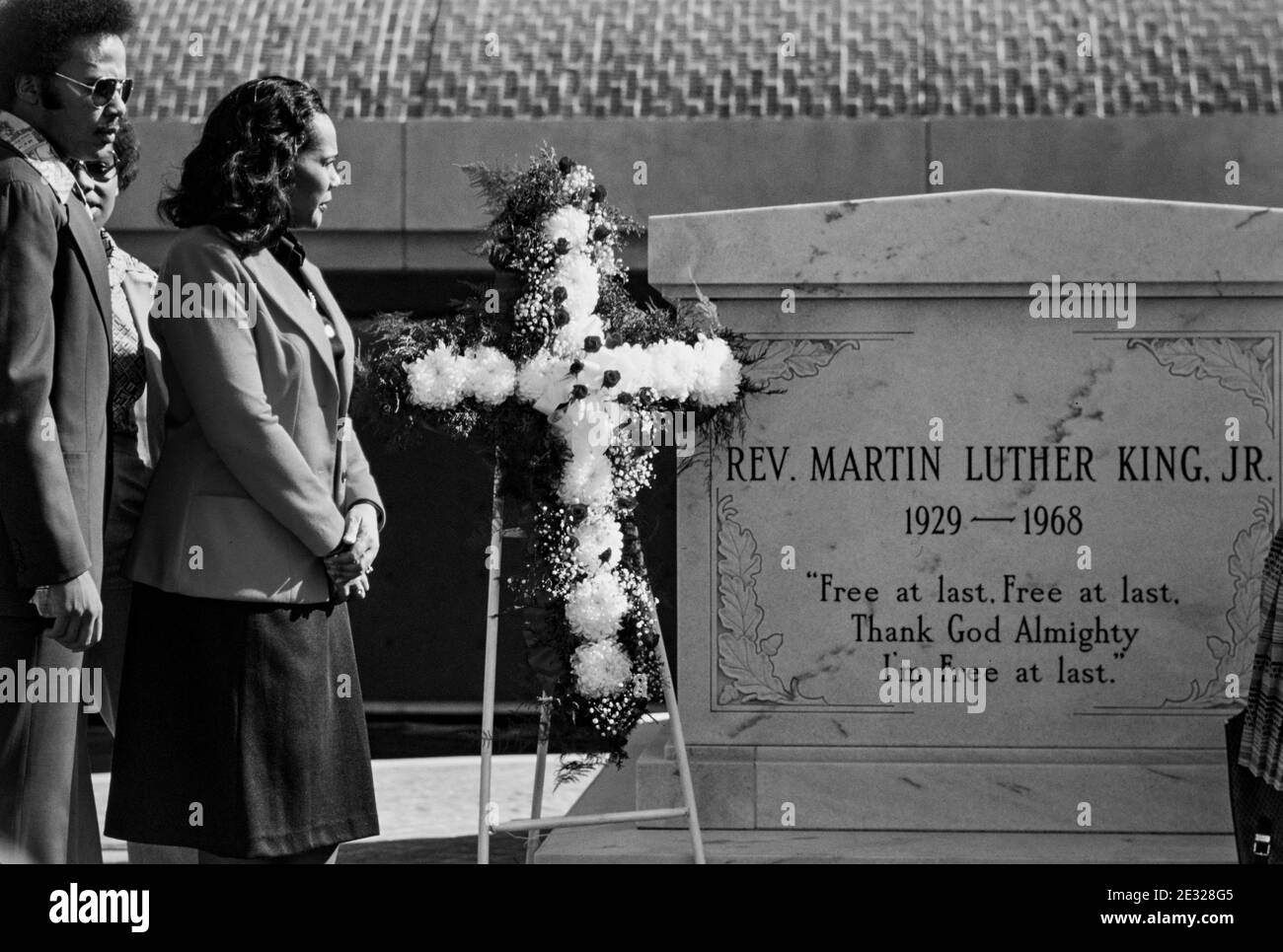Coretta Scott King, widow of slain civil rights leader Dr. Martin Luther King, Jr., at the tomb of her husband at the King Center in Atlanta, GA.

Image details
Contributor:
Ken Hawkins / Alamy Stock PhotoImage ID:
2E328G5File size:
89.1 MB (4.2 MB Compressed download)Releases:
Model - no | Property - noDo I need a release?Dimensions:
6800 x 4582 px | 57.6 x 38.8 cm | 22.7 x 15.3 inches | 300dpiDate taken:
1985Location:
King Center, Atlanta, GeorgiaMore information:
This image could have imperfections as it’s either historical or reportage.
Martin Luther King Jr. (born Michael King Jr.; January 15, 1929 – April 4, 1968) was an American Baptist minister and activist who became the most visible spokesperson and leader in the Civil Rights Movement from 1955 until his assassination in 1968. King is best known for advancing civil rights through nonviolence and civil disobedience, inspired by his Christian beliefs and the nonviolent activism of Mahatma Gandhi. He was the son of early civil rights activist Martin Luther King, Sr.. King participated in and led marches for blacks' right to vote, desegregation, labor rights, and other basic civil rights.[1] King led the 1955 Montgomery bus boycott and later became the first president of the Southern Christian Leadership Conference (SCLC). As president of the SCLC, he led the unsuccessful Albany Movement in Albany, Georgia, and helped organize some of the nonviolent 1963 protests in Birmingham, Alabama. King helped organize the 1963 March on Washington, where he delivered his famous "I Have a Dream" speech on the steps of the Lincoln Memorial. The SCLC put into practice the tactics of nonviolent protest with some success by strategically choosing the methods and places in which protests were carried out. There were several dramatic stand-offs with segregationist authorities, who sometimes turned violent.[2] FBI Director J. Edgar Hoover considered King a radical and made him an object of the FBI's COINTELPRO from 1963, forward. FBI agents investigated him for possible communist ties, recorded his extramarital liaisons and reported on them to government officials, and, in 1964, mailed King a threatening anonymous letter, which he interpreted as an attempt to make him commit suicide.[3] On October 14, 1964, King won the Nobel Peace Prize for combating racial inequality through nonviolent resistance. In 1965, he helped organize two of the three Selma to Montgomery marches. In his final years, he expanded his focus to include opposition towards poverty, capitalism,